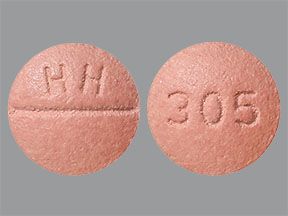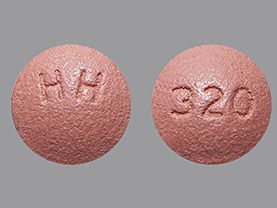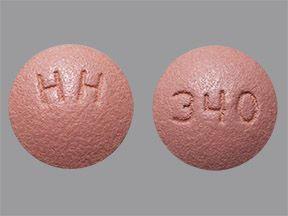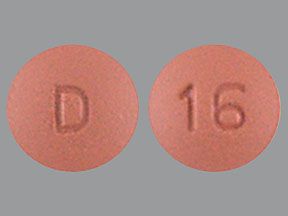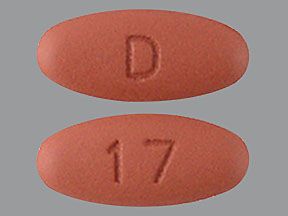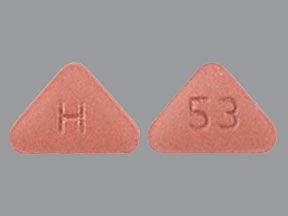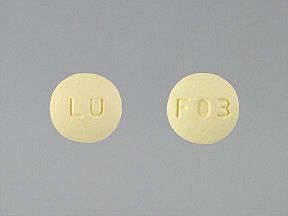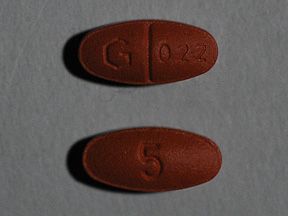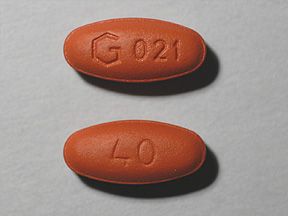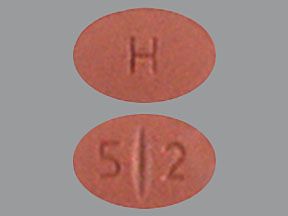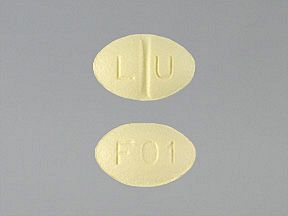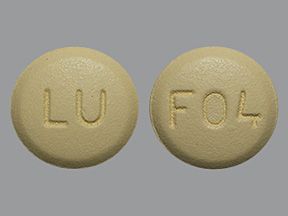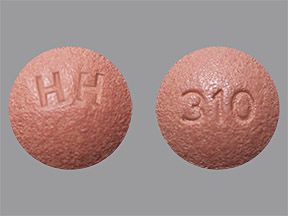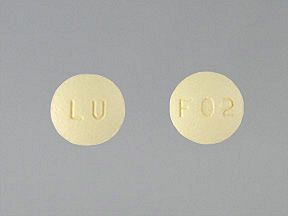On April 22, 2022, Pfizer issued a
Highlights for quinapril
- Quinapril oral tablet is available as a brand-name drug. It’s also available in a generic version. Brand name: Accupril.
- Quinapril only comes as a tablet you take by mouth.
- Quinapril is used to treat hypertension (high blood pressure) and heart failure. It may be taken alone or with other medications.
FDA warning: Use during pregnancy
- This drug has a black box warning. This is the most serious warning from the Food and Drug Administration (FDA). A black box warning alerts doctors and patients about drug effects that may be dangerous.
- Quinapril can harm or be fatal to your unborn baby. Talk to your doctor about other ways to treat your condition if you become pregnant. If you become pregnant while taking quinapril, stop taking the medication and tell your doctor right away.
Other warnings
- Swelling (angioedema): Quinapril may cause swelling of your face, lips, tongue, and throat. This may lead to trouble breathing and stomach pain, with or without nausea and vomiting. If this occurs, go to the emergency room right away.
- Low blood pressure: Quinapril can cause low blood pressure. This may make you feel dizzy or faint. Your risk may be higher if you’re taking a diuretic (water pill), are on dialysis, or have diarrhea or vomiting.
- Cough: Quinapril can cause severe cough. Talk to your doctor if you have a chronic, dry cough while taking this drug.
Quinapril is a prescription drug. It comes as an oral tablet.
Quinapril is available as the brand-name drug Accupril. It’s also available as a generic drug. Generic drugs usually cost less. In some cases, they may not be available in every strength or form as the brand-name version.
Quinapril may be taken in combination with other drugs for high blood pressure, such as diuretics. It may also be taken with other drugs for heart failure, such as digitalis.
Why it’s used
Quinapril is used to treat high blood pressure and heart failure.
How it works
Quinapril belongs to a class of drugs called angiotensin-converting enzyme (ACE) inhibitors. A class of drugs is a group of medications that work in a similar way. These drugs are often used to treat similar conditions.
Quinapril works by helping to relax and widen your blood vessels. This lowers your blood pressure.
Quinapril oral tablet may cause drowsiness. It may also cause low blood pressure, which can make you feel faint or dizzy. This is most likely to occur when you first start taking the drug or during dosage changes. Let your doctor know if you still feel dizzy or faint after your dosage is changed.
This drug can also cause other side effects.
More common side effects
Some of the more common side effects that can occur with use of quinapril include:
- headache
- dizziness
- fatigue
- coughing
- nausea or vomiting
- stomach pain
- chest pain
- low blood pressure (hypotension)
- gasping for air
- diarrhea
- headache
- muscle pain
- skin rash
- back pain
If these effects are mild, they may go away within a few days or a couple of weeks. If they’re more severe or don’t go away, talk to your doctor or pharmacist.
Serious side effects
Call your doctor right away if you have serious side effects. Call 911 if your symptoms feel life-threatening or if you think you’re having a medical emergency. Serious side effects and their symptoms can include the following:
- Swelling (angioedema). Symptoms can include:
- swelling of your face, lips, tongue, and throat
- trouble breathing
- trouble swallowing
- stomach pain with or without nausea or vomiting
- High potassium levels. Potassium is a mineral that helps the nerves, muscles, and other parts of the body work properly. Symptoms can include:
- muscle weakness
- tiredness
- tingling sensations
- nausea
- Liver failure. Symptoms can include:
- yellowing of the skin or the whites of the eyes
- pain in your abdomen
- nausea and vomiting
Disclaimer: Our goal is to provide you with the most relevant and current information. However, because drugs affect each person differently, we cannot guarantee that this information includes all possible side effects. This information is not a substitute for medical advice. Always discuss possible side effects with a healthcare provider who knows your medical history.
Quinapril oral tablet can interact with other medications, vitamins, or herbs you may be taking. An interaction is when a substance changes the way a drug works. This can be harmful or prevent the drug from working well.
To help avoid interactions, your doctor should manage all of your medications carefully. Be sure to tell your doctor about all medications, vitamins, or herbs you’re taking. To find out how this drug might interact with something else you’re taking, talk to your doctor or pharmacist.
Examples of drugs that can cause interactions with quinapril are listed below.
High blood pressure drugs
Taking these drugs with quinapril may increase your risk of low blood pressure, high blood potassium, and kidney problems. In general, the combination of quinapril with these drugs should be avoided.
Examples of these drugs include:
- angiotensin receptor blockers (ARBs), such as:
- candesartan (Atacand, Atacand HCT)
- eprosartan (Teveten)
- irbesartan (Avapro, Avalide)
- losartan (Cozaar, Hyzaar)
- olmesartan (Benicar, Benicar HCT, Tribenzor, Azor)
- telmisartan (Micardis, Micardis HCT, Twynsta)
- valsartan (Diovan, Diovan HCT, Exforge, Exforge HCT)
- azilsartan (Edarbi, Edarbyclor)
- angiotensin-converting enzyme (ACE) inhibitors, such as:
- benazepril (Lotensin, Lotrel, Lotensin HCT)
- captopril
- enalapril (Vasotec, Epaned)
- fosinopril (Monopril)
- lisinopril (Prinivil, Zestril, Prinzide, Zestoretic)
- moexipril (Uniretic)
- perindopril (Aceon)
- lisinopril (Zestril, Prinivil)
- ramipril (Altace)
- trandolapril (Mavik, Tarka)
- renin inhibitors, such as:
- aliskiren (Tekturna, Tekturna HCT)
Diuretics (water pills)
Taking these drugs with quinapril may make your blood pressure too low. Examples of these drugs include:
- loop diuretics, such as:
- bumetanide
- furosemide
- indapamide
- torsemide
- potassium-sparing diuretics, such as:
- amiloride
- eplerenone
- spironolactone
- triamterene
- thiazide diuretics, such as:
- chlorthiazide
- chlorthalidone
- hydrochlorothiazide
- methylclothiazide
- metolazone
When taken with quinapril, potassium-sparing diuretics can also increase the amount of potassium in your body too much.
Potassium supplements
Taking a potassium supplement with quinapril can increase the amount of potassium in your body too much. When taking quinapril, do not take a potassium supplement without talking to your doctor first.
Mood stabilizing drug
Taking lithium with quinapril can increase the effects of lithium.
Pain and arthritis drugs
Taking certain pain and arthritis drugs with quinapril can decrease your kidney function. Examples of these drugs include:
- nonsteroidal anti-inflammatory drugs (NSAIDs), such as:
- diclofenac
- ibuprofen
- indomethacin
- ketoprofen
- ketorolac
- meloxicam
- nabumetone
- naproxen
- piroxicam
- COX-2 inhibitors, such as:
- celecoxib
Other medications
- Taking injectable gold with quinapril can increase the side effects of injectable gold.
- Temsirolimus can increase the risk of swelling of your face, lips, tongue, or throat when taken with quinapril.
Disclaimer: Our goal is to provide you with the most relevant and current information. However, because drugs interact differently in each person, we cannot guarantee that this information includes all possible interactions. This information is not a substitute for medical advice. Always speak with your healthcare provider about possible interactions with all prescription drugs, vitamins, herbs and supplements, and over-the-counter drugs that you are taking.
This drug comes with several warnings.
Allergy warning
Quinapril can cause a severe allergic reaction. Symptoms can include:
- trouble breathing
- swelling of your face, arms, legs, eyes, lips, or tongue
- trouble swallowing
Call 911 or go to the nearest emergency room if you develop these symptoms.
Don’t take this drug again if you’ve ever had an allergic reaction to it. Taking it again could be fatal (cause death).
Warnings for people with certain health conditions
For people with kidney disease: If you have kidney disease or receive dialysis, you have a higher risk of developing lower amounts of urine or kidney failure from this drug. Your doctor will monitor your kidney function and adjust your medication as needed.
For people with high potassium levels: Quinapril may further increase your potassium levels. Your doctor will monitor your potassium levels and adjust your medication as needed.
Warnings for other groups
For pregnant women: Quinapril is a category D pregnancy drug. That means two things:
- Research in humans has shown adverse effects to the fetus when the mother takes the drug.
- This drug should only be used during pregnancy in serious cases where it’s needed to treat a dangerous condition in the mother.
Talk to your doctor if you’re pregnant or planning to become pregnant. Ask your doctor to tell you about the specific harm that may be done to your pregnancy. This drug should be only used if the potential risk to the pregnancy is acceptable given the drug’s potential benefit.
For women who are breastfeeding: Quinapril may pass into breast milk and may cause side effects in a child who is breastfed. Talk to your doctor if you breastfeed your child. You may need to decide whether to stop breastfeeding or stop taking this medication.
For seniors: Older adults may process drugs more slowly. A normal adult dose may cause levels of this drug to be higher than normal in your body. If you’re a senior, you may need a lower dose or a different schedule.
For children: This drug isn’t approved for people younger than 18 years.
All possible dosages and forms may not be included here. Your doctor will tell you what dosage is right for you. Your dose, form, and how often you take it will depend on:
- your age
- the condition being treated
- how severe your condition is
- other medical conditions you have
- how you react to the first dose
Drug forms and strengths
Generic: Quinapril
- Form: oral tablet
- Strengths: 5 mg, 10 mg, 20 mg, 40 mg
Brand: Accupril
- Form: oral tablet
- Strengths: 5 mg, 10 mg, 20 mg, 40 mg
Dosage for high blood pressure (hypertension)
Adult dosage (ages 18–64 years)
- If you’re not taking a diuretic: The typical starting dose is 10–20 mg taken by mouth once per day. Your doctor may increase your dosage up to 80 mg, taken once per day or in equally divided doses.
- If you’re taking a diuretic: Your starting dose may be 5 mg.
Child dosage (ages 0–17 years)
This drug isn’t approved for people younger than 18 years.
Senior dosage (ages 65 years and older)
The typical starting dosage is 10 mg per day.
Dosage for heart failure
Adult dosage (ages 18–64 years)
The typical starting dosage is 5 mg taken by mouth twice daily. Your doctor may increase your dosage to 20–40 mg, taken in equally divided doses two times per day.
Child dosage (ages 0–17 years)
This drug isn’t approved for people younger than 18 years.
Senior dosage (ages 65 years and older)
There are no specific recommendations for senior dosing. Older adults may process drugs more slowly. A normal adult dose may cause levels of this drug to be higher than normal in your body. If you’re a senior, you may need a lower dose or a different schedule.
Special dosage considerations
For people with kidney disease: Your starting dose may be between 2.5–5 mg depending on your kidney function.
Disclaimer: Our goal is to provide you with the most relevant and current information. However, because drugs affect each person differently, we cannot guarantee that this list includes all possible dosages. This information is not a substitute for medical advice. Always speak with your doctor or pharmacist about dosages that are right for you.
Quinapril is used for long-term treatment. It comes with serious risks if you don’t take it as prescribed.
If you don’t take it at all: Your blood pressure will stay high. If high blood pressure isn’t treated, it can lead to stroke, heart attack, heart failure, kidney failure, and vision problems.
If you stop taking it suddenly: Don’t stop taking quinapril without talking to your doctor. Stopping this drug suddenly can cause your blood pressure to spike (rise quickly). This may increase your chance for a heart attack or stroke.
If you miss doses or don’t take the drug on schedule: Your medication may not work as well or may stop working completely. For this drug to work well, a certain amount needs to be in your body at all times.
If you take too much: You could have dangerous levels of the drug in your body. You may have very low blood pressure or changes in the amount of electrolytes in your blood. This can be dangerous. Symptoms may include:
- muscle weakness
- tiredness
- tingling sensations
- nausea
If you think you’ve taken too much of this drug, call your doctor or local poison control center. If your symptoms are severe, call 911 or go to the nearest emergency room right away.
What to do if you miss a dose: Take your dose as soon as you remember. But if you remember just a few hours before your next scheduled dose, take only one dose. Never try to catch up by taking two doses at once. This could result in dangerous side effects.
How to tell if the drug is working:
- For high blood pressure: You won’t be able to feel quinapril working, but your blood pressure readings should be lower.
- For heart failure: Your symptoms of heart failure should get better.
Keep these considerations in mind if your doctor prescribes quinapril for you.
General
- Quinapril may be taken with or without food.
- The time at which you take this drug affects how it works. Taking this drug at night has been shown to decrease blood pressure more than taking it in the morning.
- You can crush or cut the tablet.
Storage
- Store quinapril at room temperature between 59°F and 86°F (15°C and 30°C).
- Keep it away from light.
- Don’t freeze quinapril.
- Don’t store this medication in moist or damp areas, such as bathrooms.
Refills
A prescription for this medication is refillable. You should not need a new prescription for this medication to be refilled. Your doctor will write the number of refills authorized on your prescription.
Travel
When traveling with your medication:
- Always carry your medication with you. When flying, never put it into a checked bag. Keep it in your carry-on bag.
- Don’t worry about airport X-ray machines. They can’t hurt your medication.
- You may need to show airport staff the pharmacy label for your medication. Always carry the original prescription-labeled box with you.
- Don’t put this medication in your car’s glove compartment or leave it in the car. Be sure to avoid doing this when the weather is very hot or very cold.
Self-management
You may need to check your blood pressure at home. To do this, you’ll need to purchase a blood pressure monitor. You should keep a log with the date, time of day, and your blood pressure readings. Bring this diary with you to your doctor appointments.
Clinical monitoring
While being treated with quinapril, your doctor will monitor certain health issues. This can help make sure you stay safe while you take this drug. These issues include your:
- blood pressure
- kidney function
- potassium levels
Your diet
Your doctor may have you follow a specific diet, such as a low-salt or low-potassium diet. Foods high in potassium include prunes, bananas, and orange juice.
Hidden costs
You may need to buy a home blood pressure monitor. These are available at most pharmacies.
Prior authorization
Many insurance companies require a prior authorization for this drug. This means your doctor will need to get approval from your insurance company before your insurance company will pay for the prescription.
There are other drugs available to treat your condition. Some may be better suited for you than others. Talk to your doctor about other drug options that may work for you.
Disclaimer: Healthline has made every effort to make certain that all information is factually correct, comprehensive, and up-to-date. However, this article should not be used as a substitute for the knowledge and expertise of a licensed healthcare professional. You should always consult your doctor or other healthcare professional before taking any medication. The drug information contained herein is subject to change and is not intended to cover all possible uses, directions, precautions, warnings, drug interactions, allergic reactions, or adverse effects. The absence of warnings or other information for a given drug does not indicate that the drug or drug combination is safe, effective, or appropriate for all patients or all specific uses.

